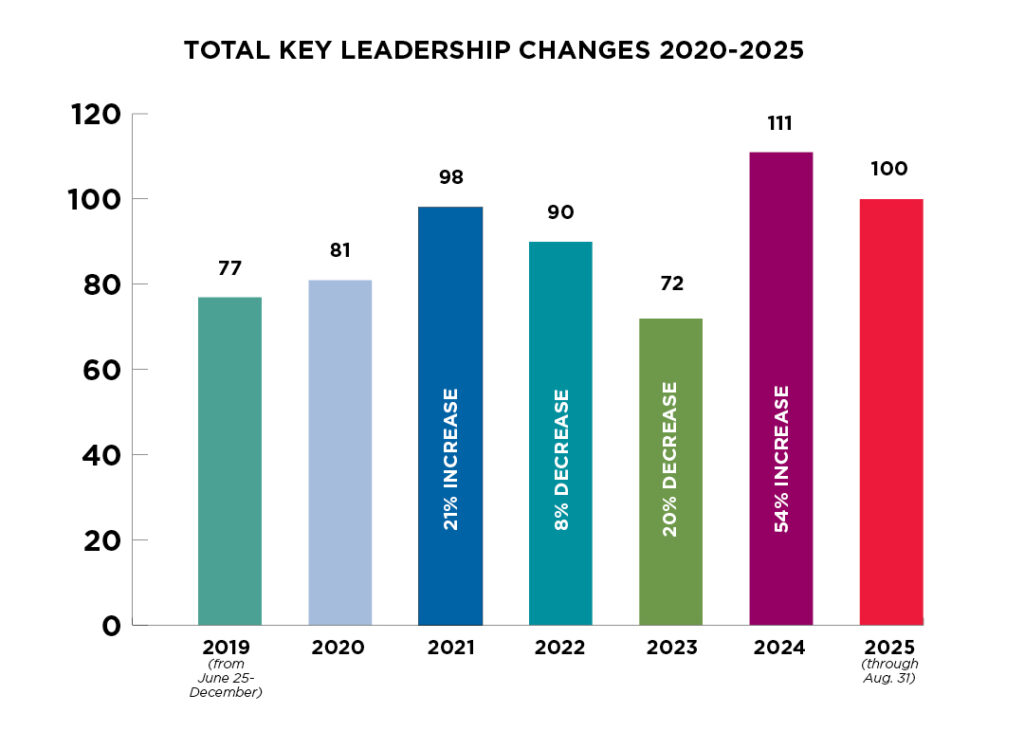Newsmaker Q&A: By the script
Liz Gilman builds new buzz for film office

PERRY BEEMAN Oct 10, 2018 | 6:48 pm
8 min read time
1,837 wordsArts and Culture, Business Record InsiderLiz Gilman’s life running Produce Iowa — think films made in Iowa, not apples — puts her in the middle of all kinds of negotiations with Academy Award winners and those who dream of winning one. Not to mention those who want to train workers or make corncribs safer.
The agency is the prime force behind the state’s efforts to sell filmmakers on the idea of producing their work in Iowa, where the lure might be anything from the corn-side Field of Dreams to an odd window or door, or a trail, or a pastoral scene.
Gilman’s one-woman shop doesn’t offer incentives. But Gilman, Produce Iowa’s executive producer, does have an extensive database of potential film sites (you can list your house or yard if you want), a ready smile, a logistical acumen, and the walking-encyclopedia type of knowledge that comes from 30 years of guiding shoots big and small. She thinks nothing of asking Tom Arnold, Kevin Costner and others for a hand in making the State Historical Building’s “Hollywood in the Heartland” display an eye-grabber. She recently hand-delivered Keokuk native Conrad Nagel’s Oscar to the historical building in Des Moines — where the star of silent films also lived — for an appearance before it travels to the Conrad Nagel Film Festival in Keokuk.
The state shut down a tax credit program for films in 2009 and basically didn’t have a film program until Gilman came aboard in May 2013. Gov. Terry Branstad wanted to promote the idea of movies filmed in Iowa, but with a skeletal effort and no financial incentives.
When she took the job, Gilman got a desk, a phone and a “good luck.” We asked her about her journey, and how things are going.
What was your career path?
I knew I wanted to get into television, but I didn’t know exactly what avenue to get into. I knew of journalism and TV news, and then I thought you had to go out to Hollywood to be in film. I had reporting classes and stuff like that. But I quickly decided I didn’t want to go that news route. I didn’t have the drive to tell the story, and I’m more of a detail person. So I kind of got my way into the producing side of it.
What did you do after school?
I pondered what I was going to do. I am from Menlo, so I stayed around here. I started to get freelance jobs at Busby Productions and the company that became Screenscape Studios.
So I just started kind of like going around cold-calling, and, you know, interviewing and found out there’s a freelance world out there. So I started, like, just being a production assistant, and a crew member working on whatever, you know, schlepping stuff around building cables, you know, stuff, but you got to learn more about the industry and meet people. And then a guy named Art Bauer at American Media. I worked on industrial how-to videos. We did videos for Fortune 500 companies.
So from there, I partnered with Terry Rich [as executive vice president of Rich Heritage Inc., a cable TV marketing and production firm]. And we did national cable television productions. So then I started working for Time Warner and TCI and those kinds of companies.
So then we were traveling all over the U.S. meeting interesting people and going to all these locations. We’d go to Las Vegas and pull up satellite trucks and production trucks and we’d shoot for the whole weekend. We were going into millions of homes live. It was amazing to think about what we were doing. It was marrying the direct response marketing with live production.
And at one point we were promoting heavyweight fights. [Evander] Holyfield, [Mike] Tyson. We’d go to Caesars Palace and be backstage and interview the refs and the managers. When the fight started, we’d be done because we were the barker channel, trying to get people to sign up for pay-per-view. So we would wrap up, see the fight and go to the HBO parties.
It was mainly Terry and me, and we could keep expenses and ensure we were lean and mean and then go out and hire as needed. And we usually would go down to Florida for Walt Disney World, or Universal Studios, or we would go to LA and shoot different things. Warner Brothers, all the different stages.
I was talking to [Des Moines developer] Bill Knapp one day and I was telling him I was at Caesars Palace when the Fan Man came in. He said, “So was I!” [She referred to the 1993 incident in which a man paraglided into the side of the ring at the Evander Holyfield-Riddick Bowe boxing match.]
So then Terry went to the [Blank Park] Zoo. The industry was changing. He wanted to do something different. So I ended up incorporating myself as Gilman Media Inc. I did a variety of projects — Civic Center, religious productions. I got on the board of the Des Moines Symphony, Winefest.
How did you find your way to the state position?
So I was just kind of minding my own business, and this opportunity came up. They asked if we could talk about this. It’s under the Department of Cultural Affairs. It’s history, arts and film. [A previous state film office under a different state division closed after legal problems related to payments to filmmakers, something Gilman’s office doesn’t do in the new arrangement.]
What is your role?
We promote and facilitate media production in our state. So I kind of act like a concierge. When people want to come to our state, they usually check in with my office, see if there are any permits or other things they need to do. They might be looking for crew locations.
It sounds like you just decided to enter a brave new world. How did you get started?
The first thing I did was inventory our state. I did, like, a city tour around the state. I met with mayors and city planners and filmmakers and media professionals. I worked especially with the chambers of commerce.
We have a media production database on our website. Anyone can use it, and Iowans get a free listing. It’s for filmmakers, makeup artists, construction, anything involved in production. Today someone was looking for a production assistant in Iowa City. MTV’s “Catfish” [a show about online relationships] was shooting over there. It’s connecting Iowans with opportunities, and the jobs are out there.
There also is a location directory. If you have an interesting bar or restaurant or old barn, you can list it here. We had a company that makes trucks that shot a commercial here because they liked an old gas station they saw [in the online photos with the directory].
Right before the last caucuses I hired a location scout to do a 45-mile radius around Des Moines to find interesting barns. A lot of people come for the hogs or corn. Some people ask about the corn in January. [Note to our coastal friends: The corn is out of the fields in the winter.]
It sounds as though you get an unusual breadth of requests. Is that true?
Yes. We have a movie going on right now in the Clear Lake and Mason City area. They are partnering with Sukup Manufacturing. They created a whole silo in the middle of an airplane hangar. The film is about being trapped in a silo. It’s going to be a feature film. They are getting ready for Sundance.
I was just up there, and people were saying how beautiful Iowa is. It’s good to get people here, because once they are here they want to come back and they realize how clean and beautiful it is, and how helpful everybody is.
What do you see the most?
We don’t get the studio films as much. We get the independent films, and Iowans making their own films. You get the Food Network or “House Hunters.” We had “Embeds,” a digital series about political reporters who were embedded in the presidential race. There was an old CNN reporter who had been here in 2008. He thought while he was here covering the race it would be great to do a show about it. So he went back and wrote the script and he was thinking Iowa. And they were saying, “Well, you know, we could re-create this on a parking lot in LA but we really think Iowa is a big enough character that we want to come here and be authentic. So we want to shoot the pilot here.”
OK, great. You know, we were just trying to connect with people and then the next thing we knew they were like, “Iowa has become a big character and we want to shoot all six episodes here.” Fabulous!
While they were here, the production company got to know Roosevelt High School and they are working on a series, “Play by Play,” that was kind of like “The Wonder Years.” They were supposed to go straight to Salt Lake City, but they liked it here so much and the school district was great to work with, the principal was fantastic, and they stayed for two or three months and shot the series here. That took off, and so they came back the next year and shot two more seasons of the show here. Last year, the production company told me they spent $4 million in Greater Des Moines. They shot at a house in Windsor Heights or Urbandale and a movie theater in Nevada and, of course, at Roosevelt.
Does the state government get any revenue from the companies?
No.
Why else is this work important?
It’s jobs. It’s disbursing money to property owners and businesses. “The Bachelor” called before they named Chris Soules and said they were thinking of coming to Iowa and wondered if we had incentives. I said no, but I got them in touch with [Catch Des Moines and the Greater Des Moines Partnership] and the chamber of commerce in Dubuque, which is very film-friendly. I’m here to make it easy.
What else are you working on?
I’m also focused on Iowa filmmakers. A big focus is education. We have 26 colleges and universities that offer media production. I got all the directors together for a summit, so people can work together on professional development. Now we have the MediaMasters Series. It sold out in a day. It’s a hands-on workshop [about various jobs in the industry]. We also do the Film Lounge that we jury, and that’s elevating filmmaking.
I want to keep Iowa students here. I would love to do some sort of incubation to capture these people who want to stay here. I’m focused on that transition from college to creating small businesses, which could also help rural Iowa. As a writer, you can be anywhere. You need your laptop and the internet.









